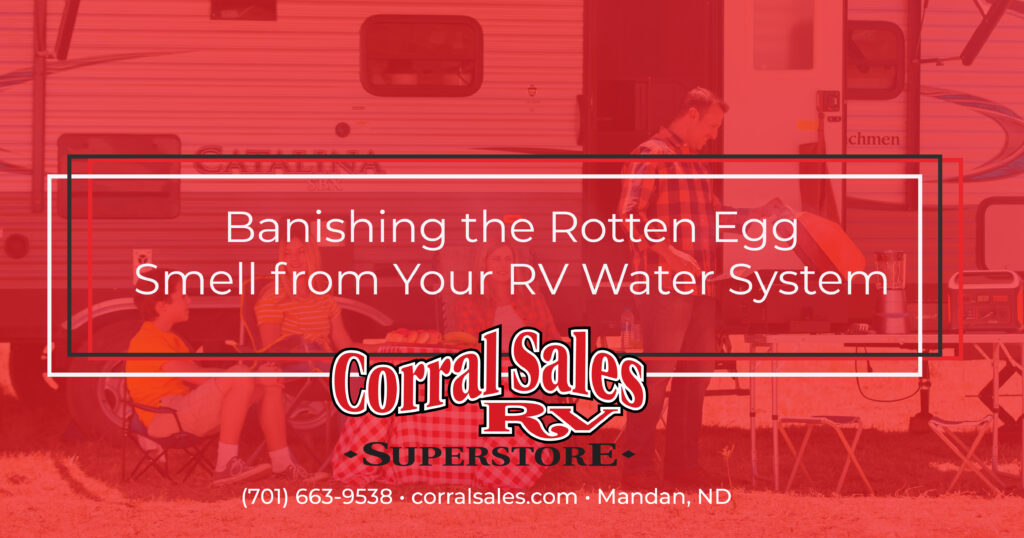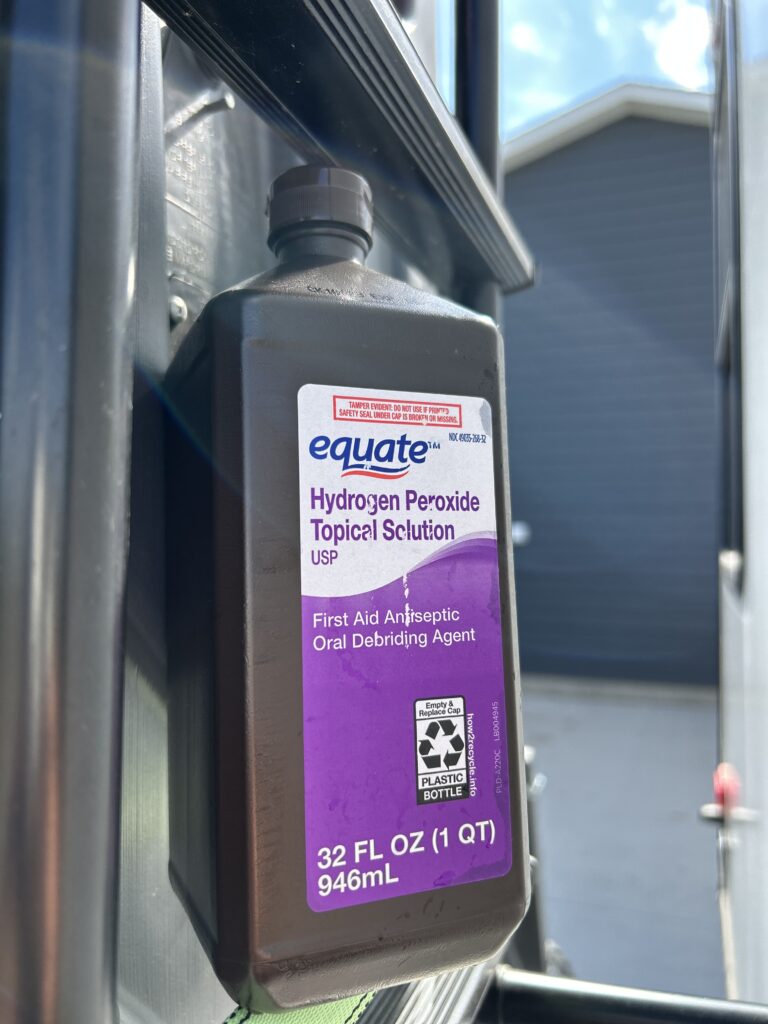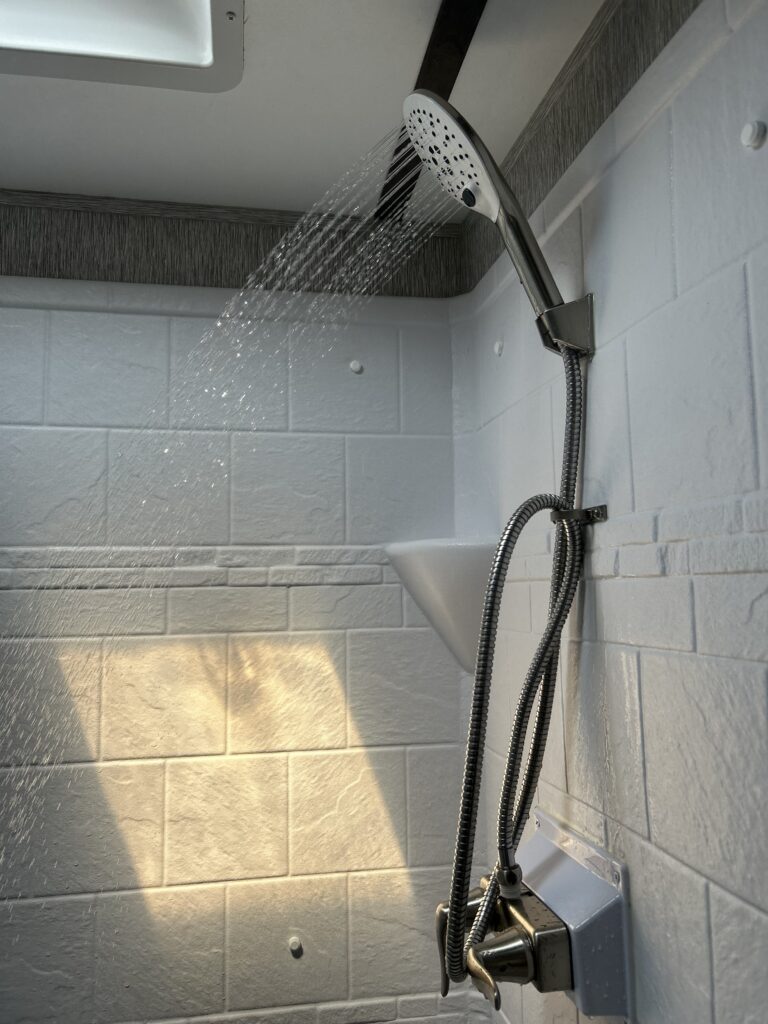Banishing the Rotten Egg Smell from Your RV Water System
- July 13, 2023
- RV Lifestyle
- Posted by RV Chad
- Comments Off on Banishing the Rotten Egg Smell from Your RV Water System

It’s time to go camping, and you eagerly open up your camper, ready to embark on new adventures. But as you turn on the water, an unpleasant odor fills the air. It smells like rotten eggs. Did someone leave eggs in the camper? Don’t worry; you’re not alone. Many RV owners have encountered this issue. In this article, we’ll explore the causes behind the rotten egg smell in your camper’s water system and provide you with effective solutions to eliminate the odor. Say goodbye to the stench and enjoy fresh, clean water during your travels.
Understanding the Rotten Egg Smell
The rotten egg smell in your camper’s water system is typically caused by anaerobic bacteria reacting with magnesium or aluminum anode rods, resulting in the release of hydrogen sulfide gas. Peroxide, a powerful germicide commonly used for cleaning wounds and oral hygiene, is highly effective in flushing water heaters to eliminate the egg-like odor. If hydrogen peroxide isn’t your preference due to its toxicity if swallowed, you can also use household vinegar.

Eliminating the Rotten Egg Smell
- Flushing with Hydrogen Peroxide or Vinegar: To begin, it’s recommended to have at least one 16-ounce bottle of hydrogen peroxide, preferably two. Alternatively, you can use household vinegar as a substitute. Start by turning off the water heater and allowing it to cool. Close the incoming water supply valve and open the pressure relief valve to release any built-up pressure. Attach a flushing wand to increase the water pressure and direct it into the deeper parts of the water heater tank.
Next, pour the hydrogen peroxide or vinegar into the water heater tank and let it sit for a few hours or overnight. This allows the solution to neutralize the bacteria and eliminate the odor. After the waiting period, flush the tank with clean water until the smell dissipates. - Consider an Aluminum-Zinc Anode: To further prevent the recurrence of the rotten egg smell, consider replacing the magnesium or aluminum anode rod with an aluminum-zinc anode. The zinc component of the aluminum-zinc anode helps combat the bacterial activity responsible for producing hydrogen sulfide and the unpleasant egg smell.
- Regular Flushing and Maintenance: To prevent the buildup of calcified sediment and deposits over time, make it a routine to flush your water heater with fresh water at least once a year. Using a flushing wand can help increase water pressure and effectively remove any accumulated deposits. Flushing will contribute to the overall health and performance of your RV water heater, reducing the chances of encountering the rotten egg smell.

Encountering a rotten egg smell when opening up your camper can be disheartening, but it’s a common issue faced by many RV owners. By understanding the causes and implementing effective solutions, you can eliminate the odor and enjoy clean, fresh water during your camping adventures. Remember to flush your water heater regularly, consider using hydrogen peroxide or vinegar to neutralize bacteria, and explore the option of an aluminum-zinc anode to prevent future odors. With these steps, you’ll be well on your way to a pleasant and odor-free water system in your RV. Happy camping!
Hi, I’m Chad Hatzenbuhler and I will be sharing RV Lifestyle topics here at Corral Sales RV as RV Chad. I am also the founder of Camping in North Dakota Facebook Group and Camping in South Dakota Facebook Group. I will be sharing my adventures every camping season on the Facebook Group, but I will also be sharing them on my Instagram account – @RV_Chad. Thank you for reading my blog post and I hope to meet you around the campfire!
